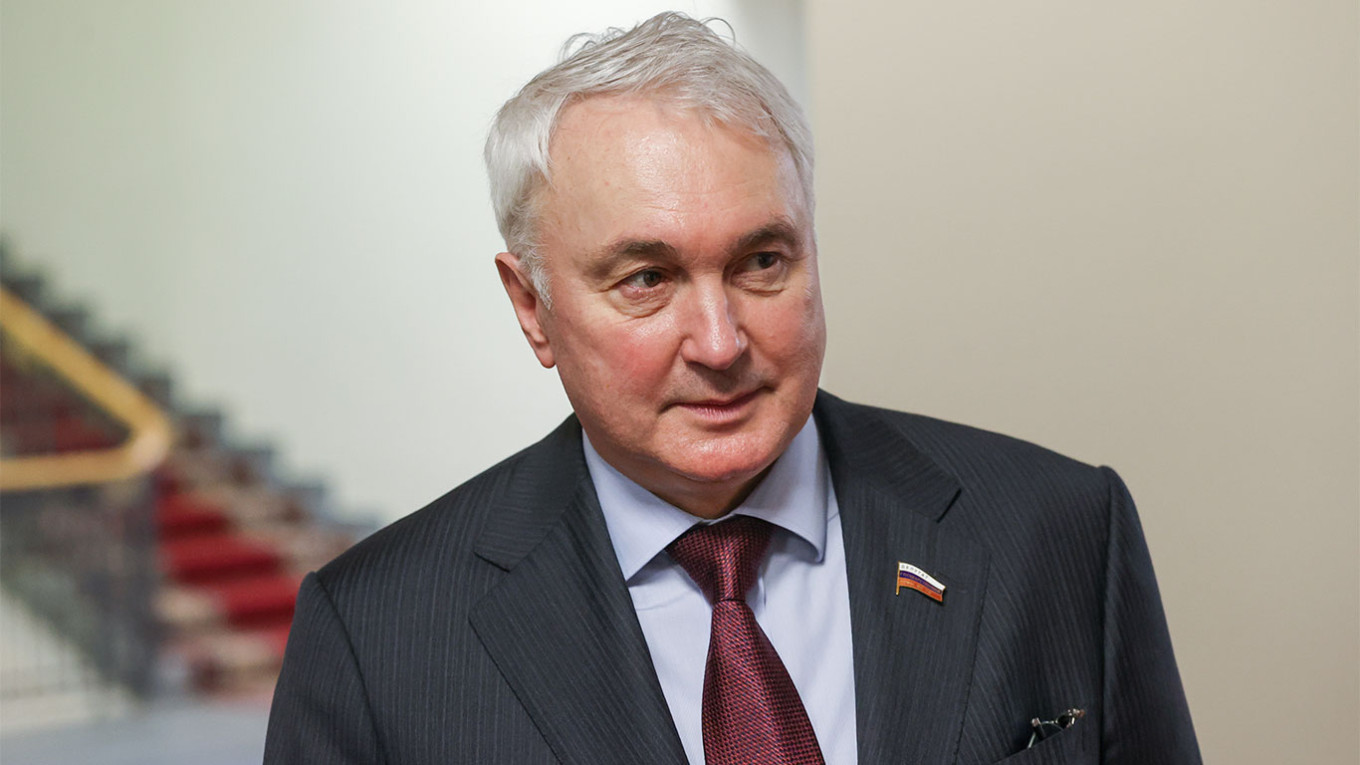Russia’s Defense Ministry had threatened to cut off funding to Yevgeny Prigozhin’s Wagner mercenary outfit if he refused to sign a contract with the military, a senior Russian lawmaker said Thursday.
Andrei Kartapolov, chairman of the lower-house State Duma's Defense Committee, said Prigozhin's Wager Group was the only military formation that refused to sign a contract with the Defense Ministry.
The private military chief “was told that, in this case, Wagner would not participate in the ‘special military operation’,” Kartapolov told reporters, using the Kremlin’s preferred term for Russia’s invasion of Ukraine.
“That meant no funding and material support for Mr. Prigozhin,” he added.
Prigozhin’s refusal to comply with a Defense Ministry order — which required all “volunteer detachments” to sign contracts with the military by July 1 — marked a dramatic escalation of his longstanding conflict with Defense Minister Sergei Shoigu, whom he has accused of mishandling the invasion.
"Taken together, all of this culminated in an attempt to betray the state, as well as deceit toward his comrades-in-arms," Kartapolov added.
Prigozhin’s rivalry with Shoigu emerged during the fight for the eastern Ukrainian city of Bakhmut, the longest and bloodiest battle in the war until it was captured by Russian forces in May.
Tensions boiled over at the weekend as Prigozhin launched an armed revolt that saw his mercenaries capture a military command center in Rostov-on-Don and march north toward Moscow.
On Sunday, the Wagner leader claimed his revolt was aimed at saving his embattled mercenary outfit and bringing to justice Russia's military leadership, who made "huge mistakes" during the war in Ukraine.
"We went to demonstrate our protest and not to overthrow power in the country," he said.
Putin, who has publicly backed Shoigu and sought to discredit Prigozhin since his failed revolt, admitted this week that Wagner had been “fully financed” by the Russian state.
The Kremlin said Thursday it was unaware of Prigozhin’s whereabouts after Belarusian President Alexander Lukashenko confirmed his arrival in Minsk, where the mercenary chief agreed to live in exile in exchange for criminal impunity.
A Message from The Moscow Times:
Dear readers,
We are facing unprecedented challenges. Russia's Prosecutor General's Office has designated The Moscow Times as an "undesirable" organization, criminalizing our work and putting our staff at risk of prosecution. This follows our earlier unjust labeling as a "foreign agent."
These actions are direct attempts to silence independent journalism in Russia. The authorities claim our work "discredits the decisions of the Russian leadership." We see things differently: we strive to provide accurate, unbiased reporting on Russia.
We, the journalists of The Moscow Times, refuse to be silenced. But to continue our work, we need your help.
Your support, no matter how small, makes a world of difference. If you can, please support us monthly starting from just $2. It's quick to set up, and every contribution makes a significant impact.
By supporting The Moscow Times, you're defending open, independent journalism in the face of repression. Thank you for standing with us.
Remind me later.






